Italian gambit. In 1943, Germany could be left without a major ally.
one of the pawns or pieces is sacrificed.
In the 1943 year, when the Red Army victories at Stalingrad and Kursk broke the back of the Nazi hordes, the Allies preferred the opening of the Second Front to the invasion of Sicily, and then on the peninsula. Roosevelt and Churchill, in correspondence with Stalin, explained this by the desire to quickly withdraw Italy, Hitler’s main European ally, from the war. If we evaluate the results of the invasion formally, this is exactly what happened: the Mussolini regime fell surprisingly easily and quickly.
Duce, who has long been unpopular with the people, has lost support even among his associates. Not the masses and not the king Victor Emmanuel III, but the Great Council of the Fascist Party led by Dino Grandi by a majority of votes (12 against 7) demanded his resignation. After an audience with the king, the dictator was unexpectedly arrested for him, sending him first to the island of Ponza, and then to the mountain hotel Campo Emperor.
But at that time the Anglo-American troops had not yet managed to clear Sicily from the enemy and could not even take Naples.
The real strategic gain for the coalition from the invasion turned out to be very doubtful, even taking into account the fact that official Italy finally capitulated. There was no question that the Italians immediately sided with the Allies, especially after the most severe Anglo-American bombing of Rome and other cities of the country. With great difficulty and at the cost of losing a number of ships, including the ultramodern battleship Roma, the Allies achieved only the main strength of the Italian fleet.
At the same time, most of the aircraft of the Italian Air Force continued to fight against the Anglo-American forces until the spring of 45.
In addition, soon the Germans, as a result of a special operation under the command of Otto Skorzeny, who is now promoted in films and books, found and fished Mussolini out of custody. Having announced the restoration of legal authority in Italy, they immediately quickly occupied the entire central and northern part of the country. With all its very solid industrial and raw materials potential. Army Group “South-West” consisting of first eight, and then sixteen and even twenty-six insufficiently staffed, but combat-ready divisions aviation Field Marshal Kesselring.
Duce after meeting with Hitler in Munich settled in the resort town of Salo on the shores of Lake Garda, making it the temporary capital of Italy. From there, he announced the overthrow of the Savoy dynasty and the convening of a neo-fascist party congress in Verona. He himself, frightened by the assassination attempts, did not go to the congress, and confined himself to a greeting message.
King Victor Emmanuel III with the whole family managed to hide in Egypt.
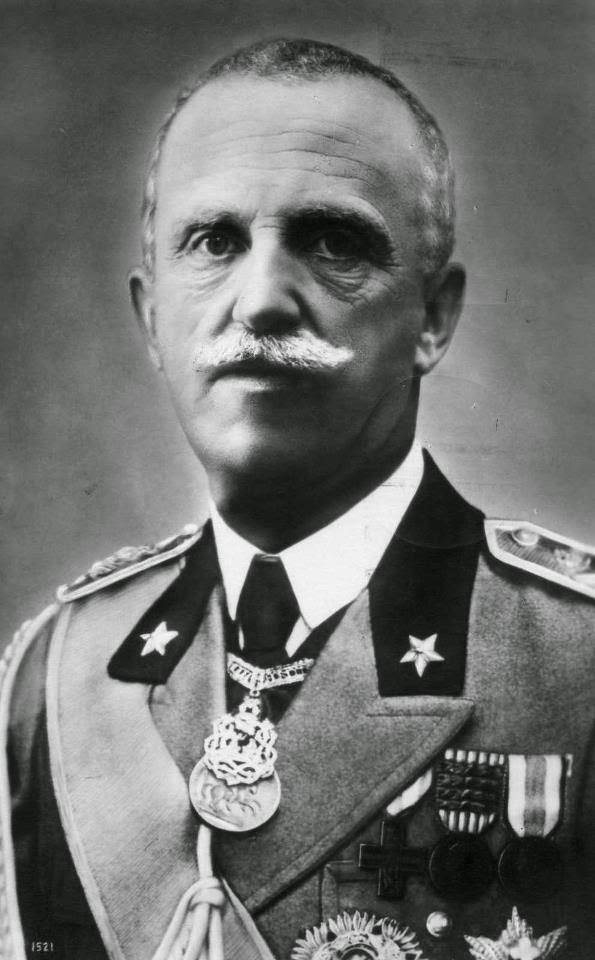
And the government, which, after the resignation and arrest of Mussolini, headed the 71-year-old disgraced marshal Pietro Badoglio, who was nearly killed by the fascists, was forced to flee south to the allies in Brindisi, completely losing any influence on his own country. However, Britain and the United States were not going to abandon the bet already made. In Italy, only they should dispose of everything, the government is nothing more than decoration, and the masters of the Savoy dynasty have enough of their “ceremonial prestige”.
Churchill continued to insist in his letters to Roosevelt that "it is very important to maintain the authority of the king and the authorities of Brindisi as a government and to achieve unity of command throughout Italy." By agreeing to the capitulation of Italy, not only with the United States, but for decency and with the Soviet Union, the British Prime Minister, considering that on October 13, the government of Badoglio declared war on Germany, seriously expected to give him "co-belligerent status." But at the same time, almost immediately and unexpectedly, he easily obtained the consent of Stalin and Roosevelt to create some kind of special commission from representatives of England, the USA and the USSR, which was supposed to actually rule Italy.
The USSR in this Allied Council was supposed to represent the notorious Andrei Vyshinsky, at that time Deputy Commissar for Foreign Affairs. However, on his arrival in Italy, the allies suggested not to introduce the Soviet representative to the commission at all, and leave Vyshinsky the function of “liaison officer”. Moscow was clearly not expecting such insolence, and from there Vyshinsky immediately gave the go-ahead for direct contacts with representatives of the Badoglio Cabinet, although under the terms of the truce any diplomatic initiative to the Italians was forbidden. Or, at a minimum, was to be controlled by the allies.
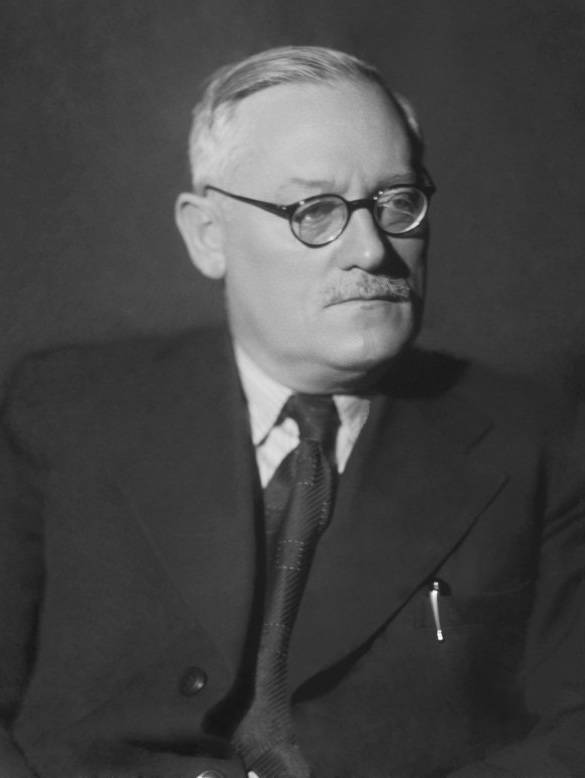
Vyshinsky met with Italian Foreign Minister Renato Prunas on several occasions, making it clear that the USSR was ready to accept the direct recognition of the Badoglio government, which had moved from Brindisi to Salerno in the spring of 1944. But on one condition - the new authorities of Italy will go to direct cooperation with the left forces, above all with the Communists, whose leader Palmiro Togliatti will not only return from emigration, but will also enter the government.
Such a gift the cabinet, which for one and a half months not only pulled back with capitulation, but continued backstage negotiations with the Nazis, reassuring the Fuhrer's associates of “loyalty to the ideas of the anti-Comintern Pact” simply could not accept. The “red” threat for Badoglio and his subordinates, as well as for the king, was almost a greater bugaboo than for Churchill himself.
Indeed, despite all the repressions of the Mussolini regime and mass emigration, many guerrilla groups, most of which, of course, were “red,” had already been operating long before the Allies landed in Sicily. And let no one be mislead by the fact that for the most part they were formed from runaway prisoners, among whom were several thousand Russians. The Italians themselves, for all their sentimentality and peacefulness, could hardly have lost their revolutionary spirit, and could well have acted not only against the accursed “Bosch”, but also against the government, because of which they invaded Italy.
However, P. Tolyatti himself did not overestimate the prospects for Italy’s left turn, insisting that the time for its real “Bolshevization” had not yet come. He suggested that Stalin limit himself to the mere entry of the Communists into the government. The Soviet leader, such an approach, oddly enough, completely satisfied. And both from the point of view of what made it possible not to repeat the sad experience of the civil war in Spain, but also to save face in relations with the allies, firmly following the agreements reached with them earlier.
Moscow listened to the opinion of the Italian Communists, realizing that the Apennines of the Red Army was still very far away, and even the idea of exporting the revolution to Italy from Yugoslavia is hardly realistic. And they preferred to start knocking out the Germans from the Soviet land, and begin to deal with the post-war structure of Europe later, and begin, for example, with Romania and Bulgaria.
Recognition of the new, although seven-month-old Italian government from the Soviet Union, was held on March 11. By that time, the Red Army was just completing the liberation of the Crimea, and the Anglo-American troops were firmly bogged down opposite the German defensive "Gustav Line", unsuccessfully storming the monastery of Monte Cassino, turned into an impregnable fortress.
Mussolini, inspired by the successes of Field Marshal Kesselring, who repelled the Allied offensive against Rome, organized a tough showdown in his party. He ordered the execution of five fascists from those 12 members of the Grand Council who voted against him last summer. Among those executed was even his son-in-law, the brilliant Count Galeazzo Ciano, who for many years had been the Minister of Foreign Affairs during the duce. The dictator was not at all embarrassed that in his home country the hated were literally ruled by all Germans, and one of the Hitlerite military leaders was really ruling there.
For England and the United States, the establishment of diplomatic relations between Soviet Russia and the new Italy came as a surprise, although it seemed to give them a complete carte blanche in the Apennines. Roosevelt, only after Churchill, realized what a mistake the Allies had committed, making a sort of diplomatic embargo with respect to Soviet-Italian contacts.
After crushing Italy, England and the United States created a precedent that the modern historian Jacques R. Powells, who was not seen in special sympathy for either London or Washington, called it “fatal.” It was with him, in fact, that the division of Europe into future zones of occupation began, when one who enters a country dictates politics and economics. It seems that those researchers who think that it is from him, and not from Churchill's Fulton speech, that the countdown can be started in the calendar of the Cold War are right.
Churchill in his memoirs, apparently trying in vain to disguise one of his own mistakes, does not hide his irritation at the recognition by the Soviet Union of the government of Badoglio. The leaders of the United States and England did not immediately realize that Italy could almost guarantee that in the future it would blush so much that it would be very difficult to steer it as it is at the moment.
After the Allies, having promised democracy to the Italians, replaced it with a “decoration,” the sympathy of the population for the Russians, who promise no one and do not impose anything, was secured. Moreover, the USSR almost immediately set about solving the problems of tens of thousands of Italian prisoners who remained there. At the same time, the highest circles of Italy were grateful to Stalin not so much for the recognition, but for the fact that he “made happy” them in fact only with one serious politician-communist - the peace-loving Palmiro Togliatti. The Soviet leader thus confirmed that it was not by chance that he once refused to support the Comintern, which continued to propagandize the ideas of the “world revolution”.
Palmiro Togliatti returned home at the end of March 1944 — after 18 years after he left it. And already on March 31 in Naples, under his chairmanship, met the National Council of the Communist Party of Italy, which put forward a program to unite all democratic forces to complete the struggle against fascism and German occupation. In response to the resolution of the IKP, adopted at the request of Togliatti, on support for the government of Badoglio, the cabinet obtained from the king actual legalization of the Communist Party. But this did not prevent the Allied forces from systematically disarming the Italian pro-communist partisan detachments.
Tolyatti himself soon became part of the Italian government, and on that, by all indications, calmed down. Apparently, for the sake of this, the Italian Communists did not even become overly indignant at the very fact of the recognition of the government of Badoglio by the Russians, although under other conditions it could have horrified them. In addition, a whole series of measures followed to virtually eliminate any Soviet influence in Italy, right up to the change of prime minister - instead of Marshal Badoglio they were “appointed” by the moderate socialist Ivaneo Bonomi, who was quietly sitting in opposition with Mussolini.
However, the Soviet leadership in relation to Italy had other, much more pragmatic calculations, besides the desire to introduce “his own person” into the Italian government. The battles in Italy did not lead the Germans to seriously weaken their forces on the Eastern Front, where they had to reap the fruits of their powerful but unsuccessful offensive on the Kursk Bulge. However, the now much more specific prospect of an Allied invasion of France made inevitable the transfer of German divisions there, and the mere fact of a hanging threat bound the German command of the arm.
And most importantly, in the case of the rapid liberation of the Apennine Peninsula, the Allies were able to release the amphibious means, so necessary for crossing the English Channel. Finally! Moreover, despite the fact that Churchill once again remembered his “Balkan plans” and ran with the idea of disembarking from Italy on the Istrian peninsula, ostensibly to help Yugoslav partisans Tito, the Soviet troops were now clearly to liberate southeastern Europe.
The provision of the Russian (and not the allies, but the Italians) airfield in the Italian Bari, which made it possible to significantly improve the supply of the National Liberation Army of Yugoslavia, turned out to be very helpful. In response to the excessive self-activity of the Allies, Moscow skillfully played the gambit, in fact sacrificing positions in Italy in order to untie its hands in Eastern Europe.
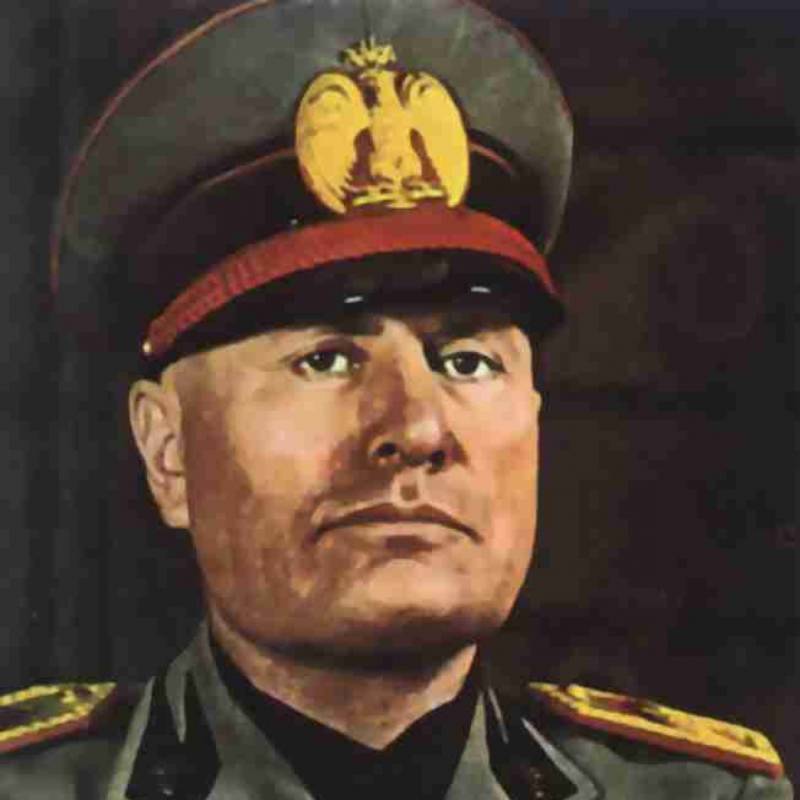
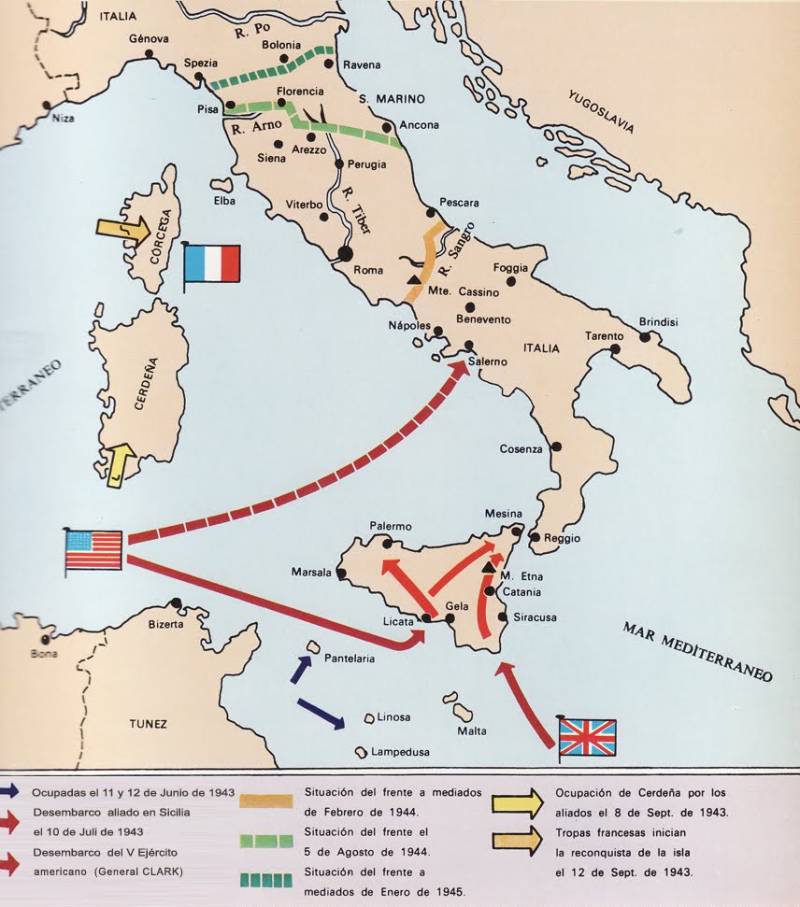
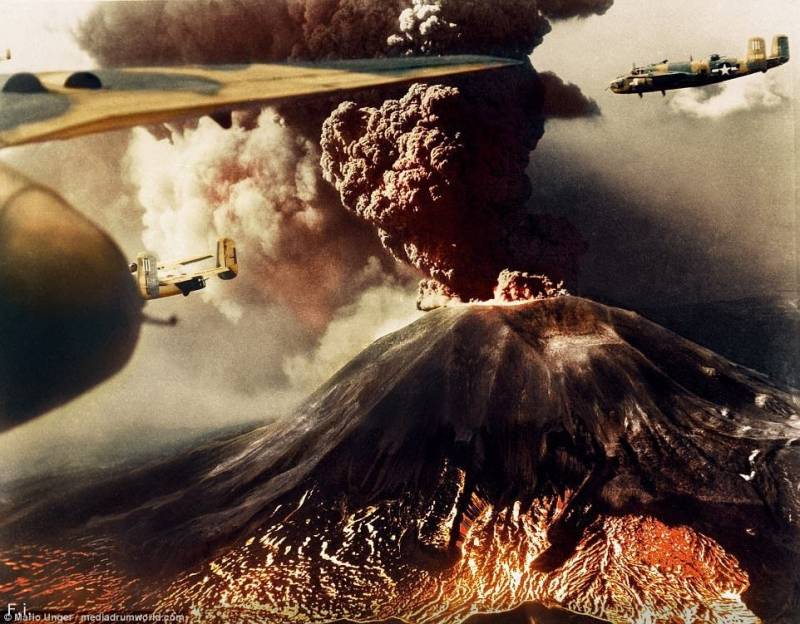
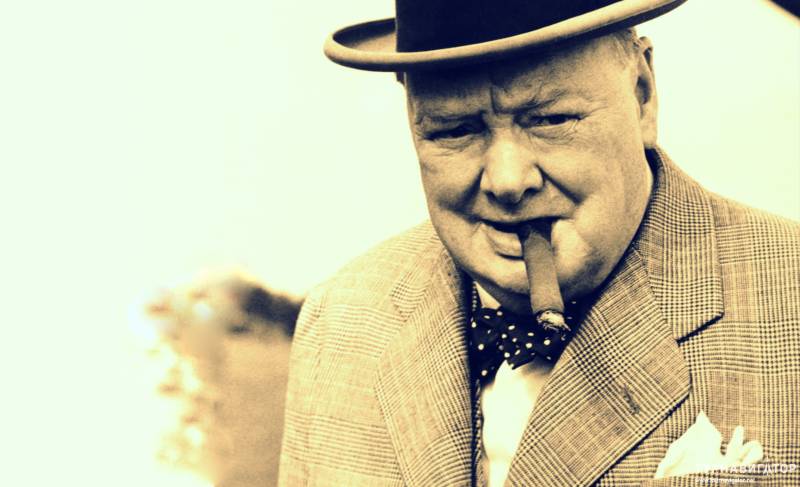
Information